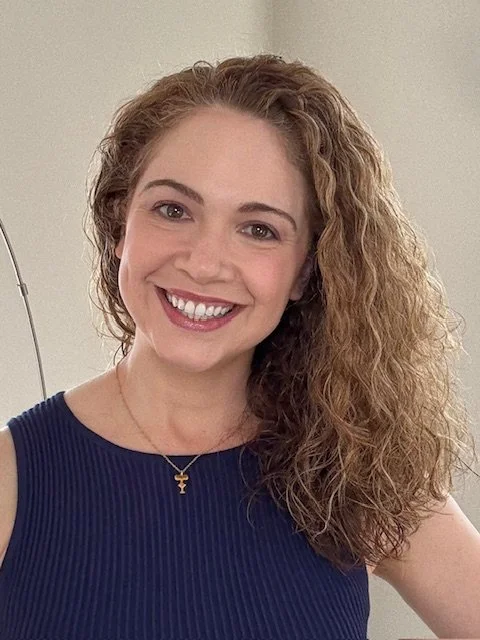How Early Menopause After Hysterectomy Inspired Julie Parana’s New Career
Julie Parana
The Menopause OT
listen or watch on:
Apple Podcasts | Spotify | YouTube
When Julie Parana went in for a hysterectomy at 42, she expected to finally be free from years of pain, heavy bleeding, and bloating caused by adenomyosis. Her surgeon reassured her that with her ovaries left intact, she’d go through menopause at the “normal” time.
But within weeks, Julie started noticing changes: brain fog, word-finding issues, restless nights, joint pain, and strange new allergic reactions. At first, she chalked them up to random health hiccups. Menopause didn’t even cross her mind — after all, she still had her ovaries.
Connecting the Dots
It wasn’t until the hot flashes hit that Julie began to suspect hormones were at play. Blood work confirmed it: her estrogen had plummeted, her FSH had skyrocketed, and she was officially postmenopausal… a full decade earlier than she expected.
The kicker? Her doctor delivered the news via a quick message in her patient portal — with zero guidance on what to do next.
Why This Happens
While early menopause after hysterectomy isn’t the norm, it’s not unheard of. Julie later learned that surgery can reduce blood flow to the ovaries, accelerating the menopause timeline by 2–5 years (or, in her case, immediately). And she’s met other women who’ve had the same experience.
This gap in knowledge isn’t just among patients — most doctors, even OB-GYNs, receive little to no training in menopause care. That lack of education can leave women unsupported during one of the most significant health transitions of their lives.
From Patient to Menopause Advocate
Frustrated but determined, Julie dove into the research, learned about the health risks of early menopause (including osteoporosis, cardiovascular disease, and dementia), and started hormone therapy. The results were life-changing.
She went on to earn certifications in women’s health and menopause coaching, eventually rebranding herself as The Menopause Occupational Therapist. Now, she works with women one-on-one and consults with companies to create menopause-friendly workplaces.
Key Takeaways from Our Conversation
• Although not common, early menopause can happen after a hysterectomy—even with your ovaries intact. Knowing the symptoms of menopause, beyond just hot flashes, is key to getting treatment sooner.
• Nervous system regulation isn’t “woo.” Practices like breathwork, morning sunlight, and short meditations can help manage symptoms and improve long-term health.
• Workplace support matters. Small changes like cooler room temps, flexible breaks, or access to fans can make a huge difference — and help companies retain experienced employees.
About Julie Parana:
Julie Parana is a licensed occupational therapist with over 20 years of experience helping adults in inpatient rehab regain function and quality of life after injury and illness. For decades, she’s worked with patients to navigate complex health challenges—so when she entered the menopause transition early and completely unprepared, she drew on her professional expertise to help herself first… and then other women.
Today, Julie is the founder of The Menopause OT, where she combines her clinical knowledge and lived experience to coach midlife women through the physical, emotional, and cognitive shifts of menopause.
Connect with Julie:
Other Episodes You Might Enjoy 🎧:
Like what you hear?
➕ Follow Belong Wellness on Apple podcasts, Spotify or YouTube for more super smart and slightly sassy midlife conversations that blend science, intuition, and zero BS.
⭐️ Please share this episode with a friend, drop a 5-star rating and leave a review! I promise I will do a happy dance if you do.
Disclaimer:
Belong Wellness and its members, managers, employees, contractors, and other agents or representatives are not licensed medical care providers and do not provide medical services or advice, including without limitation diagnosing, examining, preventing, treating, or curing any medical conditions. The information shared in this podcast is meant to be educational, not prescriptive. Please consult your medical doctor before making any changes to your diet or lifestyle. Further, the opinions of guests on this show do not necessarily reflect the opinions of Jessica or anyone affiliated with Belong Wellness.



